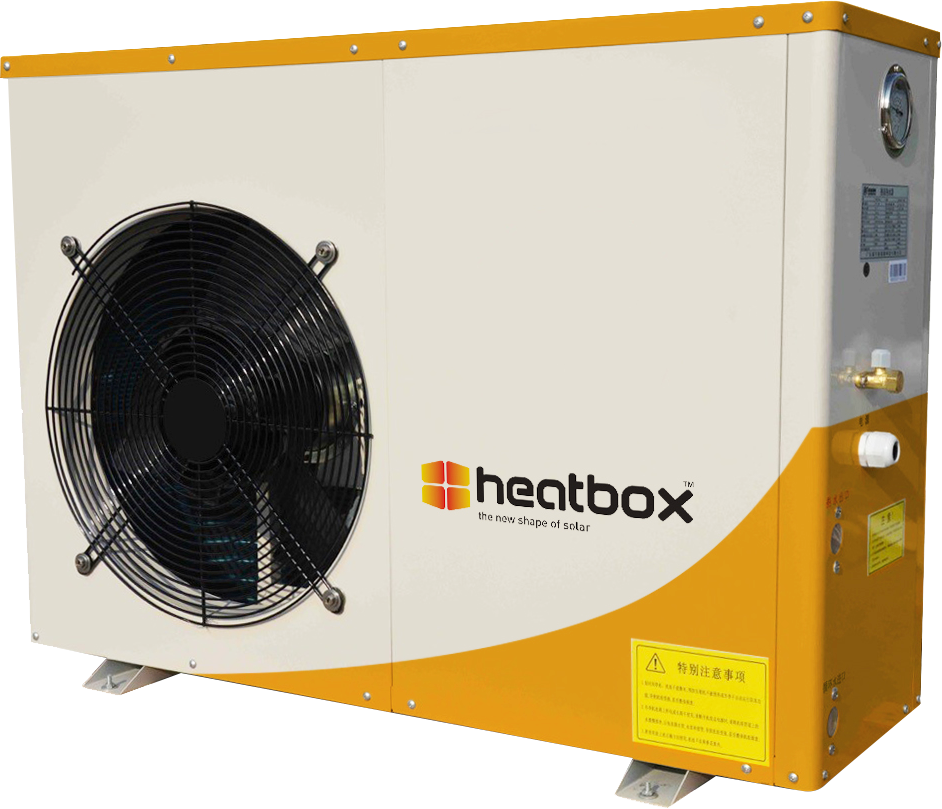A Heat Pump uses a small amount of energy to move heat from one medium to another, using mechanical work to move heat from a low temperature source to a high temperature sink. Heat Pumps use the reverse cycle of a refrigeration plant to heat water. In effect, it transfer heat from a source such as air to the water which is to be heated.
As in other refrigeration equipment, the Heat Pump system employs an evaporator, a compressor, a condenser, refrigerant gas, and an expansion valve within a closed circuit. Latent heat is given off when the refrigerant gas is liqufied through the condenser and transferred to the surrounding water together with further “sensible” heat loss, effectively raising the temperature of water to a higher temperature.
